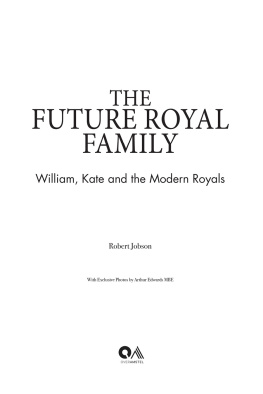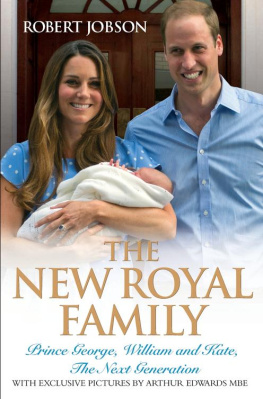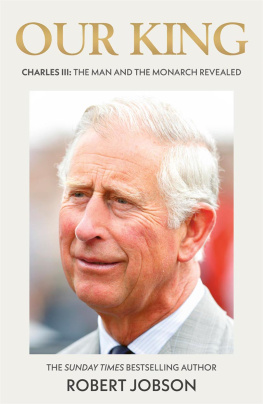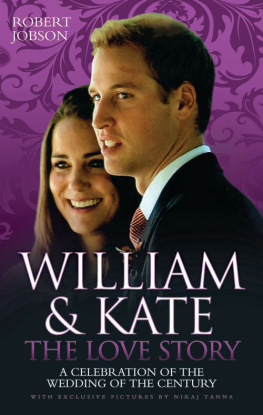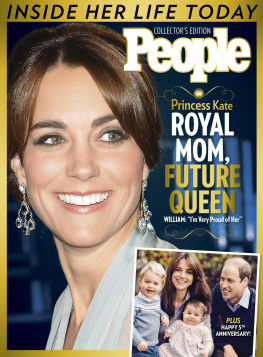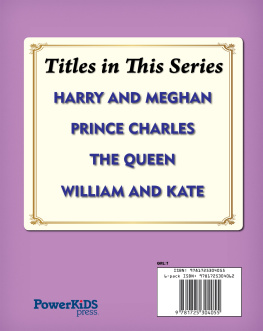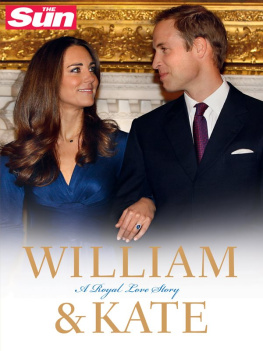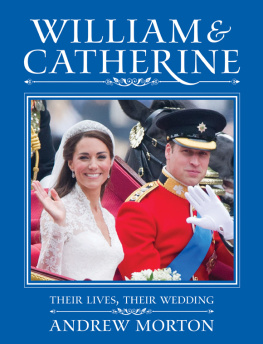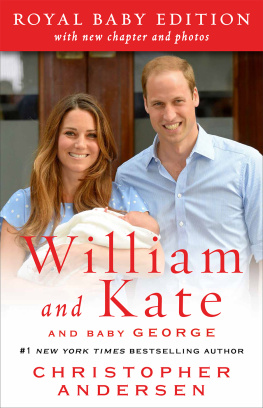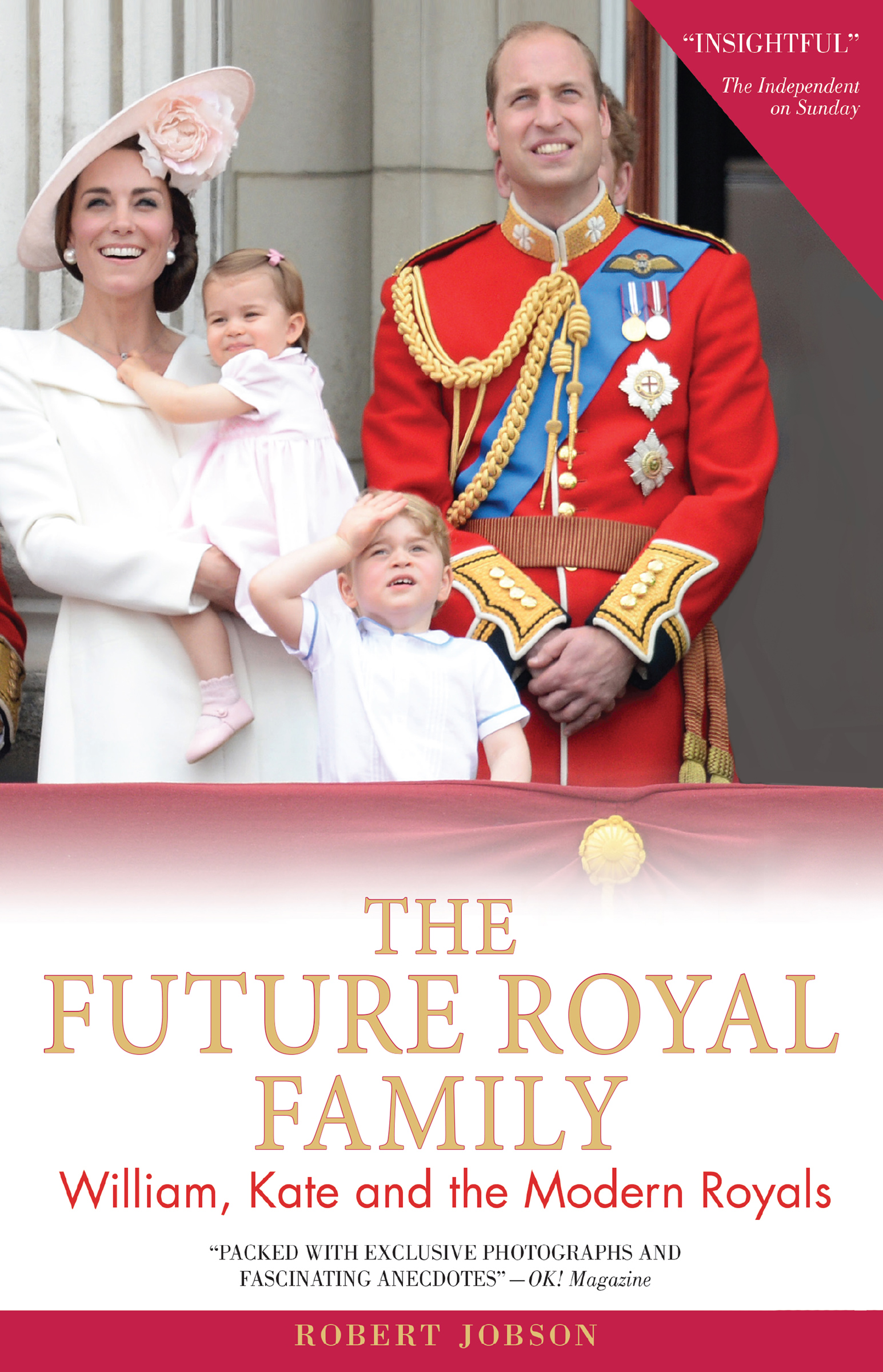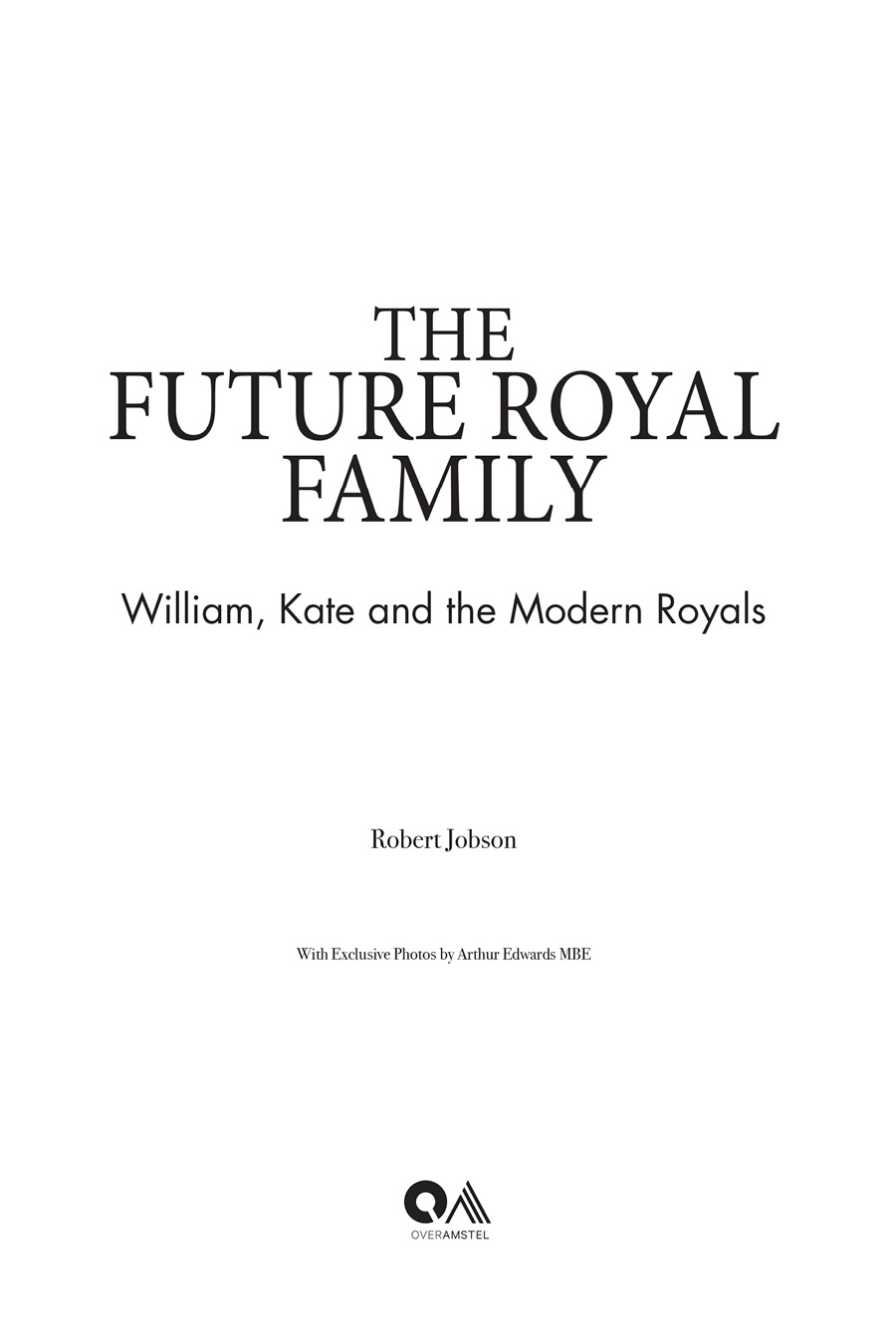Copyright 2013, 2014, 2015, 2017 Robert Jobson
first published in the united states of america in 2017 by :
Overamstel, 15 W. 36th St., 8th Fl., New York, NY 10018,
an imprint of Overamstel Publishers, Inc.
phone (646) 850-4201
Originally published in the United Kingdom by
John Blake Publishing Ltd in 2013
All rights reserved. No part of this publication may be reproduced, stored in a retrieval system, or transmitted in any form or by means electronic, mechanical, photocopying, or otherwise, without prior consent of the publisher.
distributed by : Consortium Book Sales & Distribution,
34 13th Ave. NE #101, Minneapolis, MN 55413
phone (800) 283-3572
www.cbsd.com
first u.s. updated edition june 2017
printed and bound in the u.s.a.
isbn : 978-1-944713-22-5
library of congress control number : 2017935057
In loving memory of Lance Corporal Tom Robert Jobson (1887-1952)
&
Clara Eliza Jobson (1888-1975)
The Changing of the Guard
Shell want to hand over knowing shes done everything she possibly could to help, and that shes got no regrets and no unfinished business;
that shes done everything she can for the country and that shes not
let anyone downshe minds an awful lot about that.
HRH Prince William, Duke of Cambridge talking about HM the Queen
A white-haired, well-loved, elderly lady cautiously climbed the steps of St Pauls Cathedral, without her partner of 64 years at her side. For once, she appeared frail. As she slowly progressedfollowed by her immediate familythat abiding air of implacable confidence seemed to escape her. It was an image that potentially had profound implications for the Royal Family. The date was June 5, 2012, and Her Majesty Queen Elizabeth II, Britains oldest ever monarch, was there for the Diamond Jubilee Service of Thanksgiving, an event held in her honor. It had been an exhausting weekend of national holiday, complete with pomp, pageantry and tumultuous celebration. It had clearly taken its toll on her.
Outside, the loyal Union flag-waving well-wishers kept on coming. By dawn, thousands had already gathered at the nations Cathedral to stand patiently behind steel police barriers. One woman said she had risen at 3:30 a.m. to travel to the historic event from her home in Essex. My children wanted to watch it on television, but I told them the atmosphere would be so different if we were there. She was proved right. Like so many, she wanted to feel part of it. Inside, senior members of the Government, the Opposition and representatives from around the UK and the Commonwealth heard Dr Rowan Williams, the Archbishop of Canterbury, praise Her Majestys lifelong dedication.
The Queen, however, seemed distracted, even a little lost. She could be forgiven. For once, her husband and stalwart, Prince Philip, the man she publicly described as her strength and stay ever since she met him as a giddy teenager, was not by her side. Instead, he was recovering in hospital a few miles away from a bladder infection. Her Majesty was understandably worried, but, characteristically, she uncomplainingly carried on.
Four days of Diamond Jubilee events eventually culminated in an appearance by the Queen on the Buckingham Palace balcony in front of huge, cheering crowds. There was also a fly-past by World War II aircraft, and the Royal Air Force Red Arrows capped it off perfectly. Significantly, however, this was not witnessed by the usual extended Royal Family appearing at their palace vantage point. This time, it was just the core family: The New Royal Family. She was joined by just five royals: the Prince of Wales, the Duchess of Cornwall, the Duke and Duchess of Cambridge and Prince Harry. It can have been nothing other than a conscious decision to do this and, clearly, this was, and is, the shape of things to come.
Prince Philips absence that June day was a key catalyst for a major shake-up in thinking at the heart of the Royal Family. Senior palace insiders remarked privately that it had simply looked wrong for the then 86-year-old monarch to be entering St Pauls for a celebration of her own life with a complete absence of a male family member to support her. It is a role that Prince Charles might have been expected to take on, but his responsibilities to his wife created a delicate quandary for him.
It came at the end of a glorious weekend of celebrations. The Thames River Pageant, in freezing rain, had contributed to the Dukes condition as he had stood on the deck of the royal barge for the duration, refusing to sit in one of the rather grotesque gilded thrones provided. Of course, as he did not sit, nor did the Queen. Despite this, he had seemed like he was having the time of his life; resplendent in his Royal Navy uniform, he appeared in top form.
As the party had rolled on, news emerged that, on the advice of his doctors, the Duke would have to miss the Jubilee concert, organized by Take That singer Gary Barlow, and had even been hospitalized. I was working for the American broadcaster NBC that weekend, sharing a platform for a Jubilee Special with American broadcasters Matt Lauer and the charming Meredith Vieira. Among the media, there was a mood of genuine concern.
Fortunately, on cue, Prince Charles stepped up to the mark and left his mother visibly moved by his kind, warm and sometimes emotional speech in praise of her at the close of concert. The Princes opening word, Mommy, earned him rapturous cheers from the crowd. She beamed back, looking every inch the diamond Queen when she arrived on stage, adorned with Swarovski crystals, in a stunning cocktail dress of gold lame designed by Angela Kelly, under a dark cape, with sweeping trimmings of antique gold lace and deep olive.
Mother and son, accompanied by the Duchess of Cornwall, had minutes earlier made their way down to the stage encircling the Queen Victoria Memorial to a standing ovation. Celebrities including Kylie Minogue and Cheryl Cole jostled to stand as close to the royal party as possible. There was no jostling by the pop knights, Sir Paul McCartney, Sir Tom Jones and Sir Elton John, who had all been guaranteed prime positions close to the monarch. Charles warmed his audience up by making a joke about the terrible weather for Sundays river pageant: If I may say so, thank God it turned out fine! But it was when he made a poignant reference to the Duke of Edinburgh, in the hospital just a few miles away, that Her Majestys stiff upper lip for once appeared to weaken, if only for a moment. He went on, Your Majesty, millions, we are told, dream of having tea with you. Quite a lot nearly had a picnic with you in the garden of Buckingham Palace. The only sad thing about this evening is that my father could not be here with us because, unfortunately, he was taken unwell. But, ladies and gentlemen, if we shout loud enough he might just hear us in hospital and get better.
Spontaneous cheers and applause followed. The prince spoke for everyone when he added, Your Majesty, a Diamond Jubilee is a unique and special event. Some of us have had the joy of celebrating three Jubilees with you. And I have the medals to prove it. And we are now celebrating the life and service of a very special person over the last 60 years. I was three when my grandfather George VI died and suddenly, unexpectedly, you and my fathers lives were irrevocably changed when you were only 25. So as a nation this is our opportunity to thank you and my father for always being there for us. For inspiring us with your selfless duty and service, and for making us proud to be British. Turning to his mother, he paid tribute to the life and service of a very special person.

